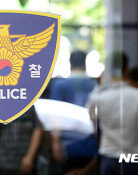What to throw away in 2010
On Nov. 18 last year, the regulation on provision of location information service, which had hindered the sale of iPhones in Korea, was eased. Ten days later, KT started the sale of iPhones. The past year has seen a sea of change not just in mobile phones and software but also in politics, society, culture and social networking. Korea laid a new foundation to emerge as a new IT powerhouse this year by removing troublesome regulations that had blocked entry into the IT market, the integration of wired and wireless, and the convergence of broadcasting and communications.
On the last day of 2010, Korea can hopefully get rid of other unnecessary rules like the IT regulation a year ago. One of the three agenda items at a New Years meeting of ministers and vice ministers Thursday was to foster the service industry. If Korea eases regulations in education and medical services, the two sectors will undergo a revolution in 2011.
While the privileged such as conglomerates blocked IT deregulations, equalitarianism is stopping the streamlining of education and medical services. Both sectors are perceived as promising areas that can create decent jobs. In particular, Koreas world-class zeal for education constitutes a good breeding ground for a globalized education market. As one of the worlds fastest aging countries, Korea might use this opportunity to develop medical services for senior citizens. A whole new world such as the smartphone is possible if the government opens the door to globally competitive educational institutions and leading medical services while aggressively lifting regulations.
Quality education and medical services are especially helpful to those who have no opportunity to go abroad. Many decent jobs can be created through areas ranging from afterschool classes and childcare facilities to lifetime education, distance learning, telemedicine, home medical services and rehabilitative treatment. This will never contradict the Lee Myung-bak administrations central policy line of pragmatism and assistance to low-income families.
The biggest obstacle to reform is interest groups that want to keep their privileges, bureaucrats who sold their souls for money, and political groups that seek votes through populism. Left-wing bodies and the main opposition Democratic Party, which exploited free school lunches in the June 2 local elections, are now offering free childcare and medical services. Even the ruling Grand National Party is coming up with populist policies to keep up with its rival, calling them policies friendly toward the low-income class.
Social jobs initiated by the government erode taxpayers money and are much lower in quality than jobs created voluntarily in the private sector. If President Lee, who need not care about re-election, considers the perspective of the people and nation, the answer to his approach will be clear. Just as IT regulations were eased a year ago, he should deregulate the service industry so that the private sectors vitality and creativity can be created voluntarily. Hopefully, old regulations can be thrown away with the old year.







